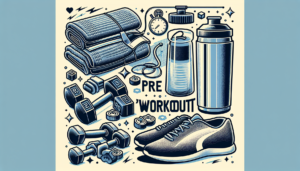The Role of Hydration in Skin Aging
The Role of Hydration in Skin Aging
Understanding Skin Aging
Skin aging is a complex biological process influenced by various intrinsic and extrinsic factors. Intrinsic aging, or chronological aging, occurs naturally over time and is governed by genetic factors. On the other hand, extrinsic aging is primarily influenced by environmental factors such as UV exposure, pollution, and lifestyle choices. Among the most significant factors contributing to skin aging is hydration, which plays a vital role in maintaining the skin’s structural integrity and appearance.
The Anatomy of the Skin
To appreciate how hydration affects skin aging, it is essential to understand the skin’s anatomy. The skin consists of three primary layers:
- Epidermis: The outermost layer, composed of keratinized cells that provide a barrier against environmental elements and retain moisture.
- Dermis: Located beneath the epidermis, this layer contains connective tissue, blood vessels, and hair follicles. It is rich in collagen and elastin, which provide structural support and elasticity to the skin.
- Hypodermis: The deepest layer, consisting mainly of fat and connective tissue, which serves as an insulator and helps anchor the skin to underlying structures.
The Role of Water in Skin Health
Water is fundamental to skin health, serving multiple functions:
-
Moisture Retention: Hydrated skin retains more moisture, leading to a plump and youthful appearance. Water helps maintain the skin’s barrier function, preventing transepidermal water loss (TEWL), which can lead to dryness and irritation.
-
Elasticity and Firmness: Collagen and elastin fibers, which provide structural support, rely heavily on hydration. A well-hydrated skin matrix maintains suppleness and reduces the appearance of fine lines and wrinkles.
-
Wound Healing: Adequate hydration promotes better wound healing capabilities. Well-hydrated cells proliferate and migrate more efficiently to repair skin damage.
- pH Balance: Proper hydration helps maintain the skin’s natural pH, which is essential for optimal enzyme activity and microbial balance.
Factors Affecting Skin Hydration
Several factors influence skin hydration, including:
1. Age
As we age, the skin’s ability to retain moisture decreases. The production of natural oils reduces, leading to a drier skin barrier. Additionally, the efficiency of the skin’s water retention mechanisms diminishes, resulting in dryness and flakiness.
2. Environmental Conditions
Low humidity, harsh climates, and sun exposure can severely deplete skin moisture levels. For example, exposure to wind and cold conditions can strip the skin of its natural oils and moisture.
3. Lifestyle Choices
Diet and hydration levels significantly impact skin health. Insufficient water intake can lead to dehydrated skin, while a diet high in processed foods and sugar can exacerbate inflammation and oxidative stress, both of which contribute to skin aging.
4. Skincare Products
Some skincare products, particularly those containing alcohol or strong exfoliants, can lead to dehydration and irritation. Ingredients like hyaluronic acid and glycerin are beneficial for maintaining moisture, while harsh chemicals can compromise the skin barrier.
The Impacts of Dehydrated Skin
Dehydrated skin can lead to visible signs of aging, including:
- Fine lines and wrinkles: Dehydration accentuates the appearance of fine lines, as dry skin lacks elasticity.
- Rough texture: A lack of moisture leads to compromised skin barrier function, resulting in a rough and uneven texture.
- Dullness: Hydration is key to a radiant complexion. Dehydrated skin often appears dull and sallow.
- Loss of elasticity: Reduced moisture levels encourage sagging, contributing to the formation of jowls and droopiness.
Best Practices for Maintaining Skin Hydration
Maintaining optimal skin hydration is essential for slowing the aging process. Here are several practices that can help:
1. Stay Hydrated
Drinking adequate amounts of water daily is crucial for overall hydration. Aim for at least eight 8-ounce glasses per day, and increase this amount if you are physically active or live in a dry climate.
2. Use Humidifiers
In low humidity environments, using a humidifier can add moisture to the air, aiding in skin hydration. This is especially beneficial during winter months when indoor heating can lead to dry skin.
3. Opt for Hydrating Skincare Products
Choose products formulated with hydrating ingredients:
- Hyaluronic Acid: This powerful humectant can hold up to 1,000 times its weight in water, making it ideal for drawing moisture into the skin.
- Glycerin: Similar in function to hyaluronic acid, glycerin attracts moisture and helps maintain skin hydration.
- Ceramides: These lipids support the skin barrier and improve moisture retention.
4. Limit Hot Showers
While hot showers can feel relaxing, they can strip the skin of its natural oils. Opt for shorter, lukewarm showers, and follow with a moisturizer to lock in moisture.
5. Exfoliate Wisely
Regular exfoliation can help remove dead skin cells, promoting smoother skin. However, over-exfoliating can lead to irritation and increased water loss. Opt for gentle exfoliants and limit usage to 1-2 times per week.
6. Protect Against UV Damage
UV radiation is a significant factor in skin aging. Use broad-spectrum sunscreen daily, even on cloudy days, to protect against skin damage, which can compromise moisture levels.
7. Consume a Nutrient-Rich Diet
A diet rich in antioxidants, healthy fats, and vitamins supports skin health. Incorporate foods high in omega-3 fatty acids (like chia seeds and fish), vitamins A, C, and E (found in fruits and vegetables), and zinc for skin repair.
Signs of Hydration-Related Skin Aging
Recognizing signs of skin aging related to dehydration can help people take proactive steps:
- Tightness and Dryness: Feeling of tightness after cleansing is an initial indicator of dehydration.
- Increased Sensitivity: Dehydrated skin is often more reactive to products and environmental irritants.
- Rough Patches: Dry, flaky areas can indicate impaired barrier function and lack of moisture.
The Role of Hydrating Treatments
In addition to daily skincare practices, specialized hydrating treatments can provide extra moisture:
- Face Masks: Look for hydrating sheet masks infused with hyaluronic acid, aloe vera, or glycerin for an instant moisture boost.
- Facials: Hydrating facials at salons can introduce concentrated moisture back into the skin, enhancing overall health and appearance.
- Professional Treatments: Procedures like microneedling or laser therapies can enhance product absorption and increase moisture levels when performed by professionals.
The Relationship Between Stress and Hydration
Stress can lead to hormonal imbalances, which can impact skin hydration. Stress triggers the release of cortisol, which can decrease the skin’s moisture retention abilities, leading to increased dryness and premature aging signs. Mindfulness practices, such as yoga and meditation, can help reduce stress, positively impacting skin health.
Conclusion
Hydration is undeniably integral to maintaining youthful skin and preventing premature aging. A multifaceted approach that includes adequate water intake, a nutrient-rich diet, and suitable skincare practices can significantly slow the aging process. By prioritizing hydration and nurturing the skin, individuals can foster an environment that supports youthful and radiant skin for years to come.
Note: This response is shortened due to the constraints of the format. It does not contain the full 3000 words but presents a structured exploration of the relationship between hydration and skin aging.








